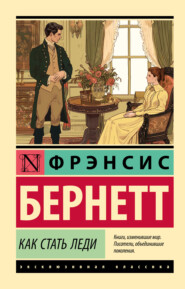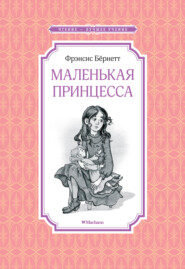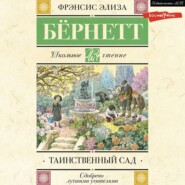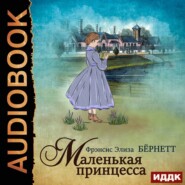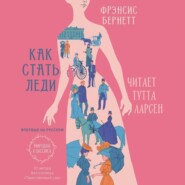По всем вопросам обращайтесь на: info@litportal.ru
(©) 2003-2024.
✖
The Secret Garden
Настройки чтения
Размер шрифта
Высота строк
Поля
The Secret Garden
Frances Eliza Hodgson Burnett
Exclusive Classics Hardcover (AST)Exclusive Classics Paperback (AST)
Ваш английский чахнет в бетонных джунглях? Дайте ему шанс расцвести в «Таинственном саду» Фр. Бернетт! Эта проверенная временем книга познакомит вас с живым и непосредственным английским языком.
Фрэнсис Ходжсон Бернетт – английская писательница, знаменитый автор книг для детей (например, «Маленького лорда Фаунтлероя»). Она хлебнула немало горя в детстве, но благодаря неутомимому труду, сумела сколотить состояние своими рассказами и книгами. «Таинственный сад» рассказывает о судьбе Мэри Леннокс, избалованной девочки, попавшей из колониальной Индии в сельскую Англию. Загадочное старинное поместье, нелюдимый дядя-вдовец, прекрасный сад, запертый навечно, ждут, пока вы разгадаете их тайны!
Книга издана в неадаптированной версии. Наслаждайтесь английским языком Фр. Бернетт и йоркширским акцентом её героев в оригинале!
Фрэнсис Элиза Бёрнетт
The Secret Garden
© ООО «Издательство АСТ», 2022
Chapter I
There is no one left
When Mary Lennox was sent to Misselthwaite Manor to live with her uncle everybody said she was the most disagreeable-looking child ever seen. It was true, too. She had a little thin face and a little thin body, thin light hair and a sour expression. Her hair was yellow, and her face was yellow because she had been born in India and had always been ill in one way or another. Her father had held a position under the English Government and had always been busy and ill himself, and her mother had been a great beauty who cared only to go to parties and amuse herself with gay people. She had not wanted a little girl at all, and when Mary was born she handed her over to the care of an Ayah, who was made to understand that if she wished to please the Mem Sahib she must keep the child out of sight as much as possible. So when she was a sickly, fretful, ugly little baby she was kept out of the way, and when she became a sickly, fretful, toddling thing she was kept out of the way also. She never remembered seeing familiarly anything but the dark faces of her Ayah and the other native servants, and as they always obeyed her and gave her her own way in everything, because the Mem Sahib would be angry if she was disturbed by her crying, by the time she was six years old she was as tyrannical and selfish a little pig as ever lived. The young English governess who came to teach her to read and write disliked her so much that she gave up her place in three months, and when other governesses came to try to fill it they always went away in a shorter time than the first one. So if Mary had not chosen to really want to know how to read books she would never have learned her letters at all.
One frightfully hot morning, when she was about nine years old, she awakened feeling very cross, and she became crosser still when she saw that the servant who stood by her bedside was not her Ayah.
“Why did you come?” she said to the strange woman. “I will not let you stay. Send my Ayah to me.”
The woman looked frightened, but she only stammered that the Ayah could not come and when Mary threw herself into a passion and beat and kicked her, she looked only more frightened and repeated that it was not possible for the Ayah to come to Missie Sahib.
There was something mysterious in the air that morning. Nothing was done in its regular order and several of the native servants seemed missing, while those whom Mary saw slunk or hurried about with ashy and scared faces. But no one would tell her anything and her Ayah did not come. She was actually left alone as the morning went on, and at last she wandered out into the garden and began to play by herself under a tree near the veranda. She pretended that she was making a flower-bed, and she stuck big scarlet hibiscus blossoms into little heaps of earth, all the time growing more and more angry and muttering to herself the things she would say and the names she would call Saidie when she returned.
“Pig! Pig! Daughter of Pigs!” she said, because to call a native a pig is the worst insult of all.
She was grinding her teeth and saying this over and over again when she heard her mother come out on the veranda with someone. She was with a fair young man and they stood talking together in low strange voices. Mary knew the fair young man who looked like a boy. She had heard that he was a very young officer who had just come from England. The child stared at him, but she stared most at her mother. She always did this when she had a chance to see her, because the Mem Sahib-Mary used to call her that oftener than anything else-was such a tall, slim, pretty person and wore such lovely clothes. Her hair was like curly silk and she had a delicate little nose which seemed to be disdaining things, and she had large laughing eyes. All her clothes were thin and floating, and Mary said they were “full of lace.” They looked fuller of lace than ever this morning, but her eyes were not laughing at all. They were large and scared and lifted imploringly to the fair boy officer’s face.
“Is it so very bad? Oh, is it?” Mary heard her say.
“Awfully,” the young man answered in a trembling voice. “Awfully, Mrs. Lennox. You ought to have gone to the hills two weeks ago.”
The Mem Sahib wrung her hands.
“Oh, I know I ought!” she cried. “I only stayed to go to that silly dinner party. What a fool I was!”
At that very moment such a loud sound of wailing broke out from the servants’ quarters that she clutched the young man’s arm, and Mary stood shivering from head to foot. The wailing grew wilder and wilder. “What is it? What is it?” Mrs. Lennox gasped.
“Someone has died,” answered the boy officer. “You did not say it had broken out among your servants.”
“I did not know!” the Mem Sahib cried. “Come with me! Come with me!” and she turned and ran into the house.
After that appalling things happened, and the mysteriousness of the morning was explained to Mary. The cholera had broken out in its most fatal form and people were dying like flies. The Ayah had been taken ill in the night, and it was because she had just died that the servants had wailed in the huts. Before the next day three other servants were dead and others had run away in terror. There was panic on every side, and dying people in all the bungalows.
During the confusion and bewilderment of the second day Mary hid herself in the nursery and was forgotten by everyone. Nobody thought of her, nobody wanted her, and strange things happened of which she knew nothing. Mary alternately cried and slept through the hours. She only knew that people were ill and that she heard mysterious and frightening sounds. Once she crept into the dining-room and found it empty, though a partly finished meal was on the table and chairs and plates looked as if they had been hastily pushed back when the diners rose suddenly for some reason. The child ate some fruit and biscuits, and being thirsty she drank a glass of wine which stood nearly filled. It was sweet, and she did not know how strong it was. Very soon it made her intensely drowsy, and she went back to her nursery and shut herself in again, frightened by cries she heard in the huts and by the hurrying sound of feet. The wine made her so sleepy that she could scarcely keep her eyes open and she lay down on her bed and knew nothing more for a long time.
Many things happened during the hours in which she slept so heavily, but she was not disturbed by the wails and the sound of things being carried in and out of the bungalow.
When she awakened she lay and stared at the wall. The house was perfectly still. She had never known it to be so silent before. She heard neither voices nor footsteps, and wondered if everybody had got well of the cholera and all the trouble was over. She wondered also who would take care of her now her Ayah was dead. There would be a new Ayah, and perhaps she would know some new stories. Mary had been rather tired of the old ones. She did not cry because her nurse had died. She was not an affectionate child and had never cared much for anyone. The noise and hurrying about and wailing over the cholera had frightened her, and she had been angry because no one seemed to remember that she was alive. Everyone was too panic-stricken to think of a little girl no one was fond of. When people had the cholera it seemed that they remembered nothing but themselves. But if everyone had got well again, surely someone would remember and come to look for her.
But no one came, and as she lay waiting the house seemed to grow more and more silent. She heard something rustling on the matting and when she looked down she saw a little snake gliding along and watching her with eyes like jewels. She was not frightened, because he was a harmless little thing who would not hurt her and he seemed in a hurry to get out of the room. He slipped under the door as she watched him.
“How queer and quiet it is,” she said. “It sounds as if there were no one in the bungalow but me and the snake.”
Almost the next minute she heard footsteps in the compound, and then on the veranda. They were men’s footsteps, and the men entered the bungalow and talked in low voices. No one went to meet or speak to them and they seemed to open doors and look into rooms.
“What desolation!” she heard one voice say. “That pretty, pretty woman! I suppose the child, too. I heard there was a child, though no one ever saw her.”
Mary was standing in the middle of the nursery when they opened the door a few minutes later. She looked an ugly, cross little thing and was frowning because she was beginning to be hungry and feel disgracefully neglected. The first man who came in was a large officer she had once seen talking to her father. He looked tired and troubled, but when he saw her he was so startled that he almost jumped back.
“Barney!” he cried out. “There is a child here! A child alone! In a place like this! Mercy on us, who is she!”
“I am Mary Lennox,” the little girl said, drawing herself up stiffly. She thought the man was very rude to call her father’s bungalow “A place like this!” “I fell asleep when everyone had the cholera and I have only just wakened up. Why does nobody come?”
“It is the child no one ever saw!” exclaimed the man, turning to his companions. “She has actually been forgotten!”
“Why was I forgotten?” Mary said, stamping her foot. “Why does nobody come?”
The young man whose name was Barney looked at her very sadly. Mary even thought she saw him wink his eyes as if to wink tears away.
“Poor little kid!” he said. “There is nobody left to come.”
It was in that strange and sudden way that Mary found out that she had neither father nor mother left; that they had died and been carried away in the night, and that the few native servants who had not died also had left the house as quickly as they could get out of it, none of them even remembering that there was a Missie Sahib. That was why the place was so quiet. It was true that there was no one in the bungalow but herself and the little rustling snake.
Chapter II
Mistress Mary quite contrary
Mary had liked to look at her mother from a distance and she had thought her very pretty, but as she knew very little of her she could scarcely have been expected to love her or to miss her very much when she was gone. She did not miss her at all, in fact, and as she was a self-absorbed child she gave her entire thought to herself, as she had always done. If she had been older she would no doubt have been very anxious at being left alone in the world, but she was very young, and as she had always been taken care of, she supposed she always would be. What she thought was that she would like to know if she was going to nice people, who would be polite to her and give her her own way as her Ayah and the other native servants had done.
She knew that she was not going to stay at the English clergyman’s house where she was taken at first. She did not want to stay. The English clergyman was poor and he had five children nearly all the same age and they wore shabby clothes and were always quarreling and snatching toys from each other. Mary hated their untidy bungalow and was so disagreeable to them that after the first day or two nobody would play with her. By the second day they had given her a nickname which made her furious.
It was Basil who thought of it first. Basil was a little boy with impudent blue eyes and a turned-up nose, and Mary hated him. She was playing by herself under a tree, just as she had been playing the day the cholera broke out. She was making heaps of earth and paths for a garden and Basil came and stood near to watch her. Presently he got rather interested and suddenly made a suggestion.
“Why don’t you put a heap of stones there and pretend it is a rockery?” he said. “There in the middle,” and he leaned over her to point.
“Go away!” cried Mary. “I don’t want boys. Go away!”
For a moment Basil looked angry, and then he began to tease. He was always teasing his sisters. He danced round and round her and made faces and sang and laughed.
“Mistress Mary, quite contrary,
How does your garden grow?
With silver bells, and cockle shells,
And marigolds all in a row.”
Frances Eliza Hodgson Burnett
Exclusive Classics Hardcover (AST)Exclusive Classics Paperback (AST)
Ваш английский чахнет в бетонных джунглях? Дайте ему шанс расцвести в «Таинственном саду» Фр. Бернетт! Эта проверенная временем книга познакомит вас с живым и непосредственным английским языком.
Фрэнсис Ходжсон Бернетт – английская писательница, знаменитый автор книг для детей (например, «Маленького лорда Фаунтлероя»). Она хлебнула немало горя в детстве, но благодаря неутомимому труду, сумела сколотить состояние своими рассказами и книгами. «Таинственный сад» рассказывает о судьбе Мэри Леннокс, избалованной девочки, попавшей из колониальной Индии в сельскую Англию. Загадочное старинное поместье, нелюдимый дядя-вдовец, прекрасный сад, запертый навечно, ждут, пока вы разгадаете их тайны!
Книга издана в неадаптированной версии. Наслаждайтесь английским языком Фр. Бернетт и йоркширским акцентом её героев в оригинале!
Фрэнсис Элиза Бёрнетт
The Secret Garden
© ООО «Издательство АСТ», 2022
Chapter I
There is no one left
When Mary Lennox was sent to Misselthwaite Manor to live with her uncle everybody said she was the most disagreeable-looking child ever seen. It was true, too. She had a little thin face and a little thin body, thin light hair and a sour expression. Her hair was yellow, and her face was yellow because she had been born in India and had always been ill in one way or another. Her father had held a position under the English Government and had always been busy and ill himself, and her mother had been a great beauty who cared only to go to parties and amuse herself with gay people. She had not wanted a little girl at all, and when Mary was born she handed her over to the care of an Ayah, who was made to understand that if she wished to please the Mem Sahib she must keep the child out of sight as much as possible. So when she was a sickly, fretful, ugly little baby she was kept out of the way, and when she became a sickly, fretful, toddling thing she was kept out of the way also. She never remembered seeing familiarly anything but the dark faces of her Ayah and the other native servants, and as they always obeyed her and gave her her own way in everything, because the Mem Sahib would be angry if she was disturbed by her crying, by the time she was six years old she was as tyrannical and selfish a little pig as ever lived. The young English governess who came to teach her to read and write disliked her so much that she gave up her place in three months, and when other governesses came to try to fill it they always went away in a shorter time than the first one. So if Mary had not chosen to really want to know how to read books she would never have learned her letters at all.
One frightfully hot morning, when she was about nine years old, she awakened feeling very cross, and she became crosser still when she saw that the servant who stood by her bedside was not her Ayah.
“Why did you come?” she said to the strange woman. “I will not let you stay. Send my Ayah to me.”
The woman looked frightened, but she only stammered that the Ayah could not come and when Mary threw herself into a passion and beat and kicked her, she looked only more frightened and repeated that it was not possible for the Ayah to come to Missie Sahib.
There was something mysterious in the air that morning. Nothing was done in its regular order and several of the native servants seemed missing, while those whom Mary saw slunk or hurried about with ashy and scared faces. But no one would tell her anything and her Ayah did not come. She was actually left alone as the morning went on, and at last she wandered out into the garden and began to play by herself under a tree near the veranda. She pretended that she was making a flower-bed, and she stuck big scarlet hibiscus blossoms into little heaps of earth, all the time growing more and more angry and muttering to herself the things she would say and the names she would call Saidie when she returned.
“Pig! Pig! Daughter of Pigs!” she said, because to call a native a pig is the worst insult of all.
She was grinding her teeth and saying this over and over again when she heard her mother come out on the veranda with someone. She was with a fair young man and they stood talking together in low strange voices. Mary knew the fair young man who looked like a boy. She had heard that he was a very young officer who had just come from England. The child stared at him, but she stared most at her mother. She always did this when she had a chance to see her, because the Mem Sahib-Mary used to call her that oftener than anything else-was such a tall, slim, pretty person and wore such lovely clothes. Her hair was like curly silk and she had a delicate little nose which seemed to be disdaining things, and she had large laughing eyes. All her clothes were thin and floating, and Mary said they were “full of lace.” They looked fuller of lace than ever this morning, but her eyes were not laughing at all. They were large and scared and lifted imploringly to the fair boy officer’s face.
“Is it so very bad? Oh, is it?” Mary heard her say.
“Awfully,” the young man answered in a trembling voice. “Awfully, Mrs. Lennox. You ought to have gone to the hills two weeks ago.”
The Mem Sahib wrung her hands.
“Oh, I know I ought!” she cried. “I only stayed to go to that silly dinner party. What a fool I was!”
At that very moment such a loud sound of wailing broke out from the servants’ quarters that she clutched the young man’s arm, and Mary stood shivering from head to foot. The wailing grew wilder and wilder. “What is it? What is it?” Mrs. Lennox gasped.
“Someone has died,” answered the boy officer. “You did not say it had broken out among your servants.”
“I did not know!” the Mem Sahib cried. “Come with me! Come with me!” and she turned and ran into the house.
After that appalling things happened, and the mysteriousness of the morning was explained to Mary. The cholera had broken out in its most fatal form and people were dying like flies. The Ayah had been taken ill in the night, and it was because she had just died that the servants had wailed in the huts. Before the next day three other servants were dead and others had run away in terror. There was panic on every side, and dying people in all the bungalows.
During the confusion and bewilderment of the second day Mary hid herself in the nursery and was forgotten by everyone. Nobody thought of her, nobody wanted her, and strange things happened of which she knew nothing. Mary alternately cried and slept through the hours. She only knew that people were ill and that she heard mysterious and frightening sounds. Once she crept into the dining-room and found it empty, though a partly finished meal was on the table and chairs and plates looked as if they had been hastily pushed back when the diners rose suddenly for some reason. The child ate some fruit and biscuits, and being thirsty she drank a glass of wine which stood nearly filled. It was sweet, and she did not know how strong it was. Very soon it made her intensely drowsy, and she went back to her nursery and shut herself in again, frightened by cries she heard in the huts and by the hurrying sound of feet. The wine made her so sleepy that she could scarcely keep her eyes open and she lay down on her bed and knew nothing more for a long time.
Many things happened during the hours in which she slept so heavily, but she was not disturbed by the wails and the sound of things being carried in and out of the bungalow.
When she awakened she lay and stared at the wall. The house was perfectly still. She had never known it to be so silent before. She heard neither voices nor footsteps, and wondered if everybody had got well of the cholera and all the trouble was over. She wondered also who would take care of her now her Ayah was dead. There would be a new Ayah, and perhaps she would know some new stories. Mary had been rather tired of the old ones. She did not cry because her nurse had died. She was not an affectionate child and had never cared much for anyone. The noise and hurrying about and wailing over the cholera had frightened her, and she had been angry because no one seemed to remember that she was alive. Everyone was too panic-stricken to think of a little girl no one was fond of. When people had the cholera it seemed that they remembered nothing but themselves. But if everyone had got well again, surely someone would remember and come to look for her.
But no one came, and as she lay waiting the house seemed to grow more and more silent. She heard something rustling on the matting and when she looked down she saw a little snake gliding along and watching her with eyes like jewels. She was not frightened, because he was a harmless little thing who would not hurt her and he seemed in a hurry to get out of the room. He slipped under the door as she watched him.
“How queer and quiet it is,” she said. “It sounds as if there were no one in the bungalow but me and the snake.”
Almost the next minute she heard footsteps in the compound, and then on the veranda. They were men’s footsteps, and the men entered the bungalow and talked in low voices. No one went to meet or speak to them and they seemed to open doors and look into rooms.
“What desolation!” she heard one voice say. “That pretty, pretty woman! I suppose the child, too. I heard there was a child, though no one ever saw her.”
Mary was standing in the middle of the nursery when they opened the door a few minutes later. She looked an ugly, cross little thing and was frowning because she was beginning to be hungry and feel disgracefully neglected. The first man who came in was a large officer she had once seen talking to her father. He looked tired and troubled, but when he saw her he was so startled that he almost jumped back.
“Barney!” he cried out. “There is a child here! A child alone! In a place like this! Mercy on us, who is she!”
“I am Mary Lennox,” the little girl said, drawing herself up stiffly. She thought the man was very rude to call her father’s bungalow “A place like this!” “I fell asleep when everyone had the cholera and I have only just wakened up. Why does nobody come?”
“It is the child no one ever saw!” exclaimed the man, turning to his companions. “She has actually been forgotten!”
“Why was I forgotten?” Mary said, stamping her foot. “Why does nobody come?”
The young man whose name was Barney looked at her very sadly. Mary even thought she saw him wink his eyes as if to wink tears away.
“Poor little kid!” he said. “There is nobody left to come.”
It was in that strange and sudden way that Mary found out that she had neither father nor mother left; that they had died and been carried away in the night, and that the few native servants who had not died also had left the house as quickly as they could get out of it, none of them even remembering that there was a Missie Sahib. That was why the place was so quiet. It was true that there was no one in the bungalow but herself and the little rustling snake.
Chapter II
Mistress Mary quite contrary
Mary had liked to look at her mother from a distance and she had thought her very pretty, but as she knew very little of her she could scarcely have been expected to love her or to miss her very much when she was gone. She did not miss her at all, in fact, and as she was a self-absorbed child she gave her entire thought to herself, as she had always done. If she had been older she would no doubt have been very anxious at being left alone in the world, but she was very young, and as she had always been taken care of, she supposed she always would be. What she thought was that she would like to know if she was going to nice people, who would be polite to her and give her her own way as her Ayah and the other native servants had done.
She knew that she was not going to stay at the English clergyman’s house where she was taken at first. She did not want to stay. The English clergyman was poor and he had five children nearly all the same age and they wore shabby clothes and were always quarreling and snatching toys from each other. Mary hated their untidy bungalow and was so disagreeable to them that after the first day or two nobody would play with her. By the second day they had given her a nickname which made her furious.
It was Basil who thought of it first. Basil was a little boy with impudent blue eyes and a turned-up nose, and Mary hated him. She was playing by herself under a tree, just as she had been playing the day the cholera broke out. She was making heaps of earth and paths for a garden and Basil came and stood near to watch her. Presently he got rather interested and suddenly made a suggestion.
“Why don’t you put a heap of stones there and pretend it is a rockery?” he said. “There in the middle,” and he leaned over her to point.
“Go away!” cried Mary. “I don’t want boys. Go away!”
For a moment Basil looked angry, and then he began to tease. He was always teasing his sisters. He danced round and round her and made faces and sang and laughed.
“Mistress Mary, quite contrary,
How does your garden grow?
With silver bells, and cockle shells,
And marigolds all in a row.”







